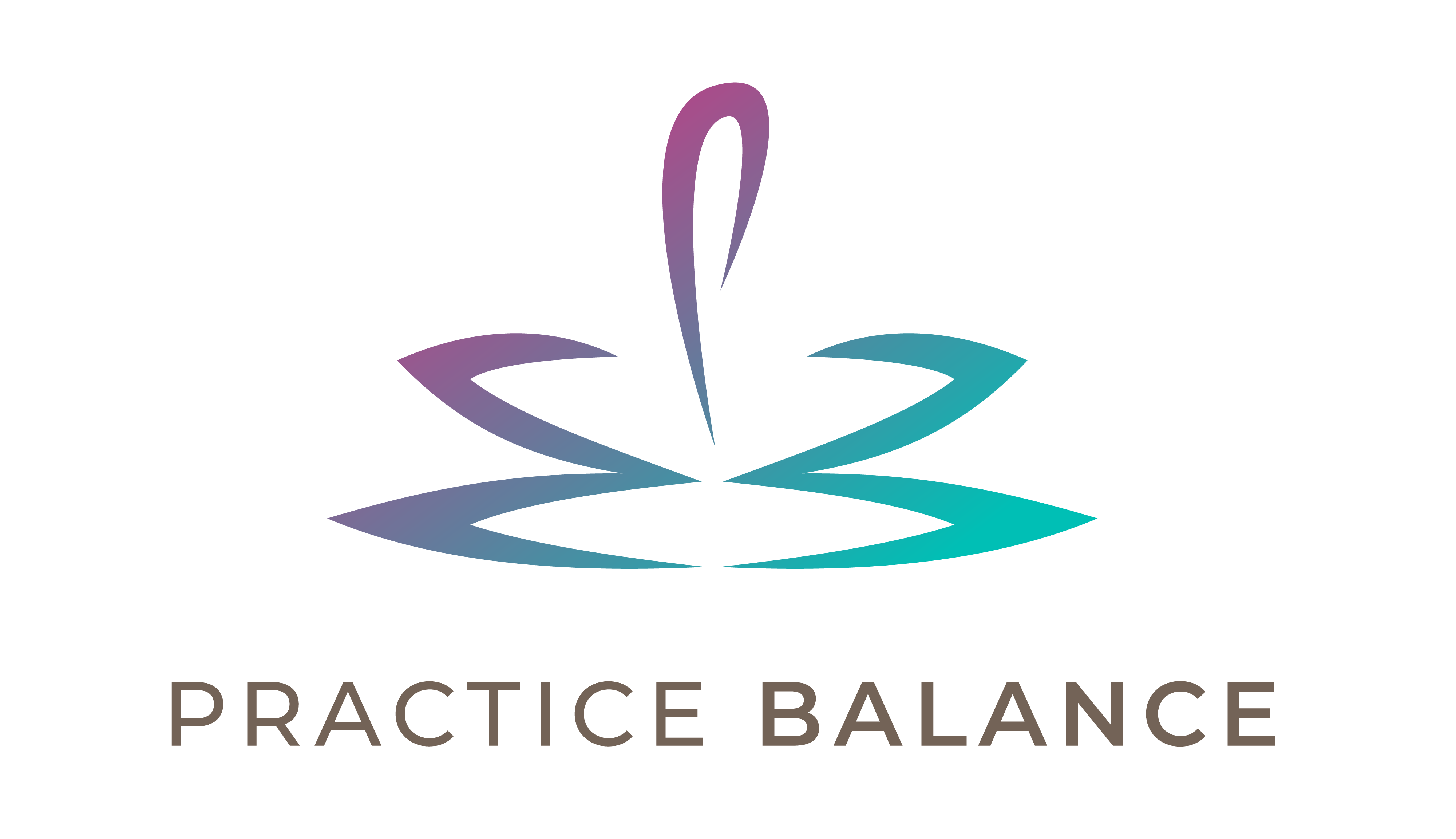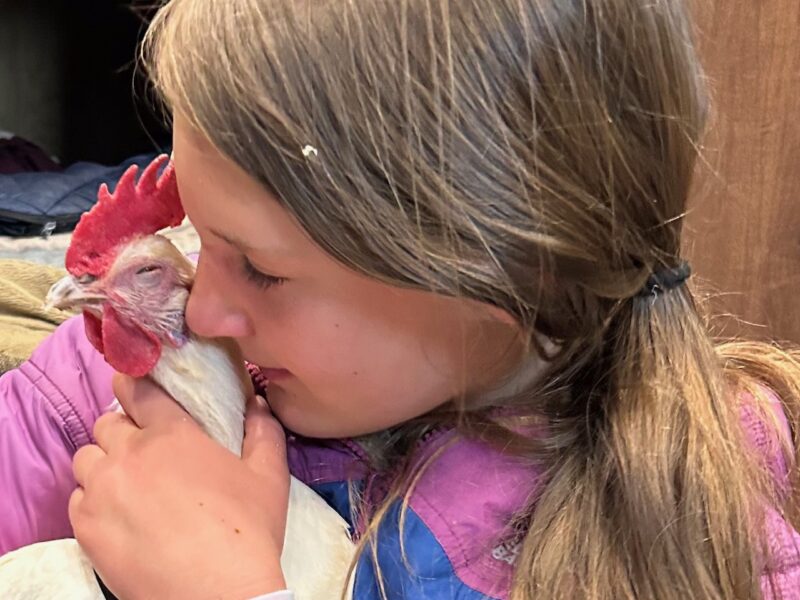(To listen to this article in podcast form, scroll to the bottom)
First off, I commend you for reading this article.
Grief and loss are not topics people love to discuss because they’re typically associated with sadness and negativity. But the thing is, loss and accompanying grief are a part of being human. We need to identify grief when it comes up, normalize it, and find unique ways that work for us to deal with it.
So why did I decide to write this?
My daughter’s favorite chicken died unexpectedly. This chicken, whose name was Blueberry or “Boo Boo” for short, was babied by her constantly.
Boo Boo was a little different than the other chickens (my daughter definitely gravitates toward the underdogs). Boo Boo always kind of looked immature, kind of like she was a big baby chick. It may have been that she was stuck in a pile with the wrong breed. While the other chickens went on through their stages of development, she didn’t look like the other chicks. Her body was shaped a little more portly, and she never got much of a comb or a waddle.
This chicken had no qualms about being coddled. My daughter would take her out of the coop area and walk around with her, stroking her head and her wings. She would sing to her and play “house” with her, and Blueberry would blissfully close her eyes while receiving all this attention.
One day when the chickens were all about a year old, my daughter went out to the coop and found Blueberry dead, face down in the wood shavings. There had been no sign that she was sick, and none of the others seemed to be having any problems. Sadly, kids undergo much more traumatic experiences than this with human loss, but man… was this traumatic for her.
Unfortunately, this all went down when I was gone on one of my clinical work assignments. It was simply horrible to not be able to hug her and comfort her. My heart hurt so badly for her. Even through a phone, I could see the immense sadness and shock in her eyes.
Incidentally, my husband stepped up and was amazing, but that’s a whole other story. They buried Boo Boo in the backyard and had a little ceremony. That was about a month or so ago, and she is not over it.
Which is fine.
She goes out and talks to the grave, and she writes Blueberry letters in her journal. But what inspired me to write this was a conversation I had with her one night.
She came into the bathroom late in the evening when I was getting ready for bed and she was supposed to be asleep. She was in violent tears: “Why did she have to die!?” She was sobbing.
So we had a discussion about a couple of things. First, sometimes things happen that we do not have control over. And second, we talked about what it means to grieve. I told her about the different stages of grief.
The Five Stages of Grief
- Denial – refusing to acknowledge or avoiding the topic of the loss
- Anger – wanting to blame people for what happened or being angry with yourself or others, or God
- Bargaining – going through the “what ifs,” wondering if you did something slightly differently, would the outcome still be as it was
- Depression – a deep sadness and a feeling of hopelessness or loss of interest in your other activities
- Acceptance – letting go of the struggle of the grief and working to move forward.
These come from the well-known Kubler-Ross model of grief, but interestingly, they don’t happen on some well-defined, linear timeline. Grief counselor David Kessler co-authored a book with Elizabeth Kubler-Ross to further explain the stages and clarify some things that people often get wrong about them.
The main misconception is that there are really no rules. Everyone grieves differently. Some people experience all of these five stages, and some do not. They don’t necessarily happen in the order originally described, either. And there is no period of time that passes where you “should” be over your grief.
The other thing Kessler points out is the only way to get past grief is to experience it. You can’t just convince yourself to “get over” grief no matter what society tells you.
Different Types of Grief
In my coaching experience, I’ve had many clients who are grieving losses. And I don’t mean just the loss of a beloved friend or family member, though sometimes those do come up.
I’m referring to other losses, which can be just as jostling, like divorce or grown kids leaving the household. A miscarriage. The loss of a patient, even if you weren’t that close to them. The loss of a very important physical item (a wedding ring comes to mind). I had a guest on the Lean Out Podcast last year, Dr. Sasha Shillcutt, who lost her house and 90% of her possessions in a tornado. She talked about her experience with grief.
There is also the loss of a job, the loss of a specific role at work, or the loss of an identity. The grieving process applies to all these kinds of losses.
My Tips for Navigating Grief
Identify your grief for what it is
Don’t turn away from it. No matter how much you cringe at the negativity, no matter how long it’s been, no matter how trivial you think the loss might be perceived by others, take care of yourself and have compassion for yourself.
How would you treat your friend who was going through the same thing? We often don’t treat ourselves as we do friends and loved ones, but in my mind, you are your closest friend. If you need outside support, find help.
There are so many grief support groups, but maybe your loss doesn’t fall into the typical categories covered by a group. In that case, you can always find a therapist or a coach who will guide you through your own unique grief journey.
Learn to swim in the ocean of your feelings
love this quote from Vicki Harrison: “Grief is like the ocean. It comes in waves, ebbing and flowing. Sometimes the water is calm and sometimes it is overwhelming. All we can do is learn to swim.”
Your grief might be like waves undulating in the ocean, growing bigger, and then crashing and then reforming. Or maybe it’s like that piece of plasticfloating out onto the horizon that keeps floating far away from you until you can’t see it anymore, and then one day it just shows up again unexpectedly like, “Hello, here I am again!” This can happen too, and this doesn’t mean there’s anything wrong with you, so learn to swim in the uncertain ocean. As I’ve talked about before and in my confidence course, true confidence is about knowing you can handle any feeling, whether positive or negative.
How can you be more emotionally agile? Our feelings are merely data. We don’t have to identify with them or decide something about ourselves because we experience them. Negative feelings are a part of life. We also don’t have to try to get over it quickly and move on. So take your time and remember that if you feel like you’re drowning, you can always find help.
Find meaning
Meaning is about how we interpret the past to inform our direction now. Dr. Jordan Grumet, who was on the Lean Out Podcast to discuss his book The Purpose Code, talked about meaning and how it applies to finding your purpose.
Grief expert David Kessler wrote a newer book called Finding Meaning: the Sixth Stage of Grief. The sixth stage is really about reframing the process of moving on. I heard him say in an interview, “We think we have to make grief smaller. The grief doesn’t get smaller. We have to grow around the grief.”
Think: How did you grow from your experience? What did it teach you? How can you use it to help others? How might it be a gift and an opportunity?
I hope you found these thoughts useful. Again, we all experience losses, and we all experience grief. It’s part of being human.
How have you dealt with loss in your own life? Can you share an example? Leave a comment below!



 Lean Out Podcast: Nature with K Kay Moody
Lean Out Podcast: Nature with K Kay Moody
